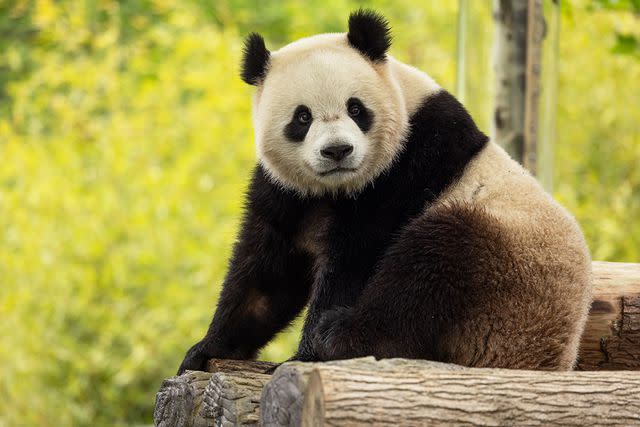Pandas Will Return to the National Zoo in Washington D.C. by the End of 2024
The zoo's new pandas, Bao Li and Qing Bao, were born at the China Conservation and Research Center for the Giant Panda

Roshan Patel/Smithsonians National Zoo and Conservation Biology Institute
Qing BaoThe un-bear-able wait is over! Pandas are returning to the National Zoo.
On Wednesday, May 29, the Smithsonian’s National Zoo and Conservation Biology Institute announced that they will welcome two giant pandas – Bao Li and Qing Bao – to the D.C. zoo by the end of the year.
The pandas were born at the China Conservation and Research Center for the Giant Panda. Bao Li, whose name means “treasure” and energetic,” is a two-year-old male. Qing Bao, whose name means “green” and “treasure,” is a two-year-old female.
Bao Li’s mother was born at the zoo in 2013 and his grandparents, Tian Tian and Mei Xiang, lived there from 2000 to 2023.

Roshan Patel/Smithsonians National Zoo and Conservation Biology Institute
Bao Li"We’re thrilled to announce the next chapter of our breeding and conservation partnership begins by welcoming two new bears, including a descendent of our beloved panda family, to Washington, D.C.," said John and Adrienne Mars Director Brandie Smith in a press release. "This historic moment is proof positive our collaboration with Chinese colleagues has made an irrefutable impact."
The news was shared in a YouTube video that featured first lady Dr. Jill Biden with Smithsonian Secretary Lonnie G. Bunch III and Smith.
Related: Pandas Are Returning to the San Diego Zoo! Meet the 'Gentle' Bears Moving to California
"We can't wait to celebrate this historic moment here in our nation's capitol. Join us! It's official the pandas are coming back to DC," Dr. Biden exclaims in the video while holding a panda stuffed animal.
Moments of people reacting in excitement are shown through short clips as it is also said that, in addition to being able to see the pandas at the zoo which offers free admission, people from "across the globe" will be able to watch them via the "panda cam."
Last November, three giant pandas left the zoo to return to China after the zoo’s Giant Panda Cooperative Research and Breeding agreement with the China Wildlife Conservation Association expired. The agreement, started in December 2000, was renewed three times. The departure of the three bears marked the first time the National Zoo had been without pandas since 2000. The new contract is effective through April 2034.
Related: China Plans to Send New Pandas to the U.S., Signs Agreement with the San Diego Zoo
Once again, FedEx will serve as the zoo’s partner to transport the bears from China to Washington, D.C, using air and ground transportation methods. Richard W. Smith, president and chief executive officer of Airline and International at FedEx, said in the release, "It’s a privilege to take part in this next phase of the Smithsonian’s National Zoo and Conservation Biology Institute’s giant panda program and provide the safest and most comfortable transportation for these beloved animals."

Roshan Patel/Smithsonians National Zoo and Conservation Biology Institute
PandaUpon arrival at the zoo, the pandas will be quarantined in the panda house for at least 30 days with a dedicated team of keepers, nutritionists and veterinarians. Following the quarantine period, the bears will have "a few more weeks to settle into their new habitat." The public debut date will be announced at a later time.
Related: Zoo Dyes Chow Chow Dogs to Look like Pandas and Exhibits the Pups as 'Panda Dogs'
Pandas first came to Washington D.C. in 1972, and shortly after, the species was classified as "endangered." In a 2022 interview with PEOPLE, Janine Brown, who leads the endocrinology lab at the institute, reflected on the "true collaboration" between China and the U.S., as well as with other zoo programs around the world. "They want their flagship species to survive, and we obviously want it as well. It's really heartwarming to see how hard everybody works to get this done."
Never miss a story — sign up for PEOPLE's free daily newsletter to stay up-to-date on the best of what PEOPLE has to offer, from celebrity news to compelling human interest stories.
Over the five decades, the Smithsonian Zoo has maintained "one of the world’s foremost giant panda conservation programs," and helped reclassify the species from “endangered” to “vulnerable" in 2021.
For more People news, make sure to sign up for our newsletter!
Read the original article on People.


